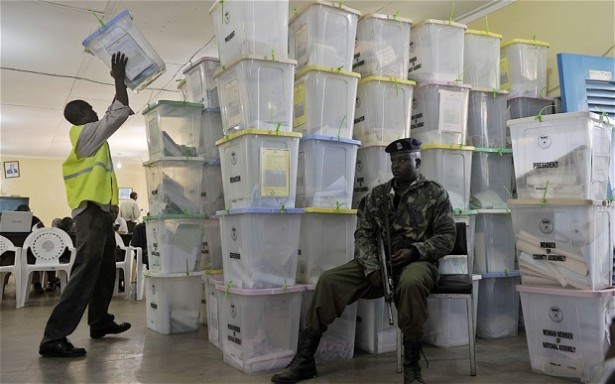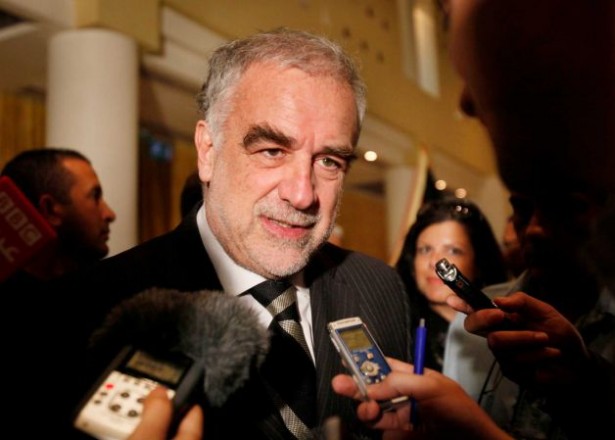
A soldier guards ballots during last week’s presidential election
In 2007, moments after Kenyan president Mwai Kibaki was re-elected, much of the East African country was immersed in bloodshed. Thousands poured into the streets, outraged by the results of the widely controversial election. According to New York Times columnist Jeffrey Gettleman, “Western observers said Kenya’s election commission ignored undeniable evidence of vote rigging to keep the government in power.” Those opposed to the outcome vowed to violently overturn the results and catapult Raila Odinga, a member of the Luo tribe, into power. In the days following, over 1,000 people were killed and roughly 600,000 people were displaced from their homes due to riots with government soldiers. The controversy resulted in the formation of a coalition government between Kibaki and Odinga. Kibaki remained President and Odinga was appointed Prime Minister.
Six years later, former International Criminal Court Prosecutor Luis Moreno-Ocampo is claiming that the cases he initiated against those involved in the violence following Kenya’s 2007 election have helped curb a repeat in violence after this month’s election. Uhuru Kenyatta – the son of Kenya’s founding father, was declared the winner of the recent election and is awaiting confirmation of his victory. However, the president-elect is also indicted by the ICC for crimes against humanity, after being accused of bearing much of the responsibility for the violence following the 2007 election.
Similar to the previous election, Odinga is challenging the results, claiming he wasn’t credited with 1.8 million additional votes cast for him. If not for this alleged rigging, Odinga says he would have won the election. However, even with these allegations the country remains peaceful. Moreno-Ocampo believes this dramatic change is due in large part to the precedent set by him and the ICC during the previous election. People are aware of the consequences of similar crimes against humanity and therefore are thinking before reacting with violence. “It’s the same players, but playing a different game,” Moreno-Ocampo told the Associated Press.

Former ICC prosecutor Luis Moreno-Ocampo speaks to members of the press.
Despite dropping charges on three of the six original suspects, current ICC prosecutor Fatsou Bensouda fully intends to continue with the trial and prosecution of Kenyatta and his running-mate William Ruto, who is also indicted. In a filing to judges she wrote:
“The withdrawal of the charges against Mr. Muthaura (former head of Kenya’s civil service) does not impact upon the factual case the prosecution will present against Mr. Kenyatta at trial,” Bensouda wrote. “That case remains unaltered.”
Once election results are confirmed he will become the second African president indicted by the ICC, joining Sudan’s Omar Al-Bashir. Kenyatta’s trial is set to start in July.
The reduction in violence following this year’s election gives the International Criminal Court massive credibility and offers a fine case study on the effects of indictment. It is for this reason that Invisible Children is advocating for the arrest, trial, and prosecution of Joseph Kony and his top commanders. The precedent set by his trial will undoubtedly hinder and discourage the actions of future human rights violators.
Think people should hear about this?